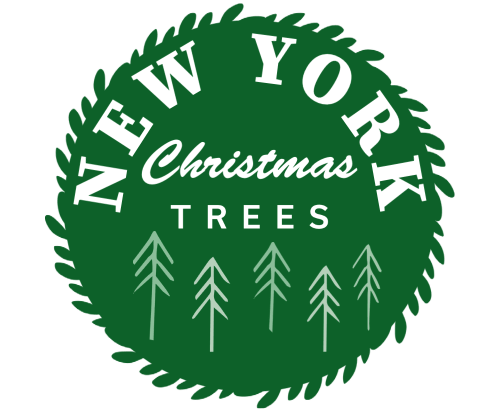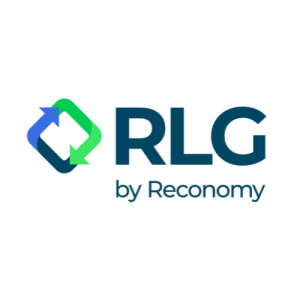Packaging EPR laws are putting complex pressures on producers in the United States and Canada, with mandatory packaging data reporting deadlines approaching.
— Andriana Kontovrakis
US, March 1, 2024 /EINPresswire.com/ — Reverse Logistics Group (RLG), part of the Reconomy brand family, announces the launch of packaging data management and reporting software solutions. RLG will enhance North American consumer goods brands’ and retailers’ efforts in collecting, verifying, organizing, and reporting packaging data – as well as mining data for business intelligence.
RLG is uniquely equipped to assist producers with every stage of Extended Producer Responsibility (EPR) compliance activities, from legal assessments that determine foundational packaging compliance obligations, to bespoke packaging analysis and consultation.
As a global provider of compliance services, RLG has decades of experience in compliance across many fractions – not only packaging but waste from electrical and electronic equipment (WEEE) and batteries as well. In North America, RLG’s offering is strengthened by tools developed by fellow Reconomy brand Valpak, which has been supporting many of the world’s top brands with packaging data management and reporting in the United Kingdom since 1997.
The flagship of the service is the Data Insight Platform. Many customers use the Platform to scrutinize supply chains and identify problematic materials like hard-to-recycle, colored plastics. It can also be used to meet current and future legislative demands, such as reporting evidence of recycled content.
According to RLG’s US Director of Compliance Services, Andriana Kontovrakis, “What makes this tool unique is the potential to quickly analyze the data, to make better-informed choices that reduce both the financial burdens of EPR laws and the impact on the environment.”
Kontovrakis said: “With four states working to implement packaging EPR programs and many others gearing up for future legislation, businesses face unprecedented new responsibilities and tasks – especially as each state’s law has unique requirements. Mandatory packaging data reporting will begin in some states in 2025.”
Canadian producers (brands and manufacturers) also face reporting requirements – as well as requirements to pay EPR fees based on submitted packaging data. However, laws in Canada were implemented sooner than in the US, with the earliest Canadian packaging EPR law implemented over twenty years ago.
Andrea Chmielinski, Director of New Business Development at RLG Canada, said: “Even though packaging EPR is not entirely ‘new’ in Canada, retailers and manufacturers face
challenges to gather packaging data from suppliers – and, importantly, verify data and reporting accuracy. American companies have a window of opportunity to strengthen their data management approach ahead of regulatory implementation, which will reduce costs in the mid-term.”
Under EPR laws, regulated businesses, called producers, take on an “extended” responsibility for the costs associated with the full lifecycle of their products and packaging, specifically at end of life. EPR laws have been designed to incentivize the reduction of plastic and packaging, as well as increase recyclability and sustainability. Fees are based on mandatory submissions of sales and weight-based packaging data. The sustainability and environmental attributes of packaging affect the level of EPR fees that producers must pay.
Packaging data must be accurate to ensure that producers don’t overpay compliance fees or face fines for reporting inaccurate information.
According to Kontovrakis, collecting and tracking packaging data can be complex. “Under EPR, the weight of each packaging component must be tracked and reported along with specific individual attributes of each component material. For example, a bottle of shampoo may come in a plastic bottle with a separate lid and label, packaged in an outer sleeve of shrink wrap or a cardboard box. So there’s complexity in the packaging of what looks like an apparently ‘simple’ product.”
Products in multifaceted packaging composed of many material types – like televisions or toys – can have attributes that are especially cumbersome to track and report, Kontovrakis said.
Shipping containers and packing materials, for products delivered via mail, such as envelopes or boxes, can also be considered packaging types that are covered by such laws.
The complexity of EPR laws is the primary reason many businesses are turning to RLG to clarify and simplify the process – not only in the US and Canada, but worldwide.
Collaborating as part of Reconomy’s Comply Loop, RLG and Valpak have a powerful, comprehensive proposition to support producers with packaging EPR compliance in North America.
The Data Insight Platform, an online packaging data management tool that has been finely honed over the past fifteen years by Valpak in conjunction with top brands, provides rapid access to data, generating both high-level overviews and granular insights. It streamlines the compliance process and provides in-depth analysis that can reduce costs by pinpointing opportunities for savings.
Already, over 48 million Stock Keeping Units (SKUs) populate the platform, so the process of gathering data – and verifying it – is significantly simplified through automated comparisons and reliable averages.
As a global provider of compliance services, RLG has decades of experience in compliance across many fractions – not only packaging but waste from electrical and electronic equipment (WEEE) and batteries as well.
In 2023, it was awarded the Operator contract for Ontario Canada’s Common Collection System, and under Oregon’s new EPR system, RLG Pack will take on the role of Producer Responsibility Organization for packaging.
Chmielinski said: “Brands face a daunting set of challenges when it comes to collecting and reporting packaging data, but it is important to remember that EPR compliance is feasible when you have the right support.”
To learn more about RLG’s data management services, visit www.rev-log.com.
Andriana Kontovrakis
Reverse Logistics Group
email us here
Visit us on social media:
LinkedIn
![]()
Originally published at https://www.einpresswire.com/article/692583766/reverse-logistics-group-launches-epr-readiness-service-for-producers-affected-by-packaging-laws-in-the-us-canada




